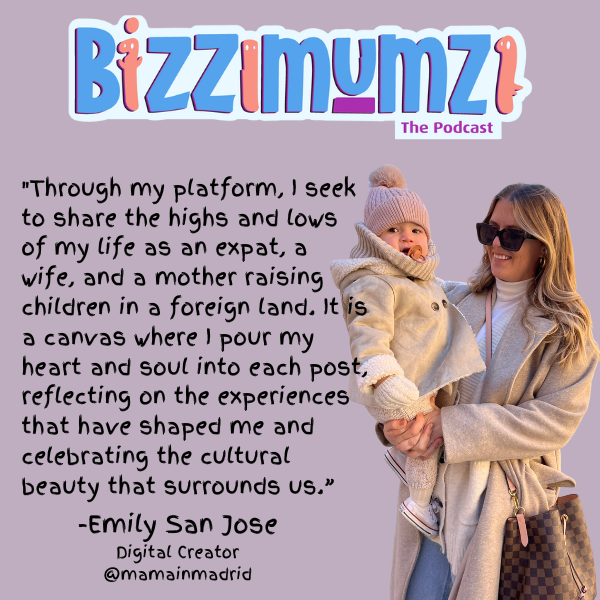
As a working mom, I know the struggles that come with finding balance between work and family life. After becoming a working mother in Spain, I’ve noticed several significant difference\s compared to my experience in the US. These are all very personal experiences, and not based on anything other than my own knowledge. 🙂
The maternity leave system in Spain stands out to me as the biggest difference. In the US, I had two c-section deliveries and after burning through my limited “sick” and “vacation days” was left to finish my maternity leave while not collecting any sort of income.. on top of then being without vacation days for the rest of the year. In Spain, Mothers receive 16 weeks of leave for a single birth and 18 weeks for multiples, paid in full.. Additionally, and more recently, partners are now also able to take up to 16 weeks of paid leave. If you do the math, that means that the first 8 months of the babies life will be spent with a primary caregiver at home.
In the US, if your child is sick, you often have to use your own vacation or sick leave to take time off to care for them (question – how do you do this if you’ve used all of your sick and vacation leave in your “maternity leave?”. In contrast, Spain does not have “sick leave,” but rather, a justificante from a doctor can be obtained and your workplace is legally obligated to grant time off based on the doctor’s recommendation. If you are taking more than 4 days off for illness you recieve 60% of your pay, if the time exceeds 12 days you recieve 75%. Furthermore, if your child is seriously ill and requires long-term care, you can take a “baja,” allowing you to maintain your job and most of your income while caring for your child.
This aspect can vary greatly depending on the company and individual circumstances. Currently, I work in a fast-paced start-up and support a mostly US-based team, which leads to some late-night meetings and a what can be a challenging work-life balance with young kids. However, I have a supportive team that understands my priorities as a mother and are understanding if there are days I need to disconnect early. In general, the work day in Spain starts later and ends later (for me its 7:30), which can be complicated with young kids. But, that being said, in Spain the minimum requirement for paid vacation that companies are required to offer full time employees is 22 days + 14 public holidays in Madrid. With that amount of vacation and the general slow down of all work related things in August, you get a solid amount of time to disconnect completely and come back feeling refreshed.
I became a stepmom at 25, had Henry at 27, and my second, Carlota, at 30. In the US, having kids at that age is considered very normal and happens to be when majority of people try to have children. In Spain, from my experience, most people don’t start thinking about marriage and babies until they are late 20’s/early 30’s. Because of this, at my company and on my team, I’m actually the only one with kids. When I tell people at work that I have 3 kids at home, they often look at me in disbelief. Some even ask (seriously), “why?”. It’s definitley interesting to work with a group that the majority do not have children, but I am super thankful that they are all very understanding and push me to put my kids first. They make sure I’m making school pick ups in the afternoon or not missing a Christmas performance during the Holidays. This is something that I also experienced in the US, but mostly being surrounded by other parents.
The cost of childcare is significantly different between the two countries. In the US, we were paying $1,500 a month for full-time daycare for ONE child. This cost would have increased to at least $3,000 if we stayed in Oregon, which was much more than half of my monthly income. In Spain, the average cost for full-time daycare (8 am to 5 pm) is around 400 euros for private daycare, or 100 euros for public daycares, which are just as high quality (but harder to get into). Children in Spain generally start “school” at 3 years old and education is fantastic and affordable, even in partially public “concertado” schools. Being able to afford to send our 3 children to daycare and private school is a blessing, this is not something that we could have done in the US with the current cost of daycares and childcare.
Overall, I’ve always been lucky enough to be in companies, in the US or Spain, that supported me as a working mom. What I can say about Spain that set it’s apart from the US are the government supports that are set up in place to protect a caregiver and in doing so, the child. I appreciate that I am able to continue my career as a professional woman, but also be able take care of my kids and show up for them everyday.

Hey there, I’m Emily, a 32-year-old American mom soaking up the joys of life in Madrid with my adorable kids. Through my blog, I share captivating stories of our cultural journey, lifestyle musings, and thrilling adventures that come with raising a family in this vibrant city. Join me as we navigate the exciting challenges and embrace the beauty of our Madrid Mom Life together!
Follow me here: https://mamainmadrid.com/



Comments (0)